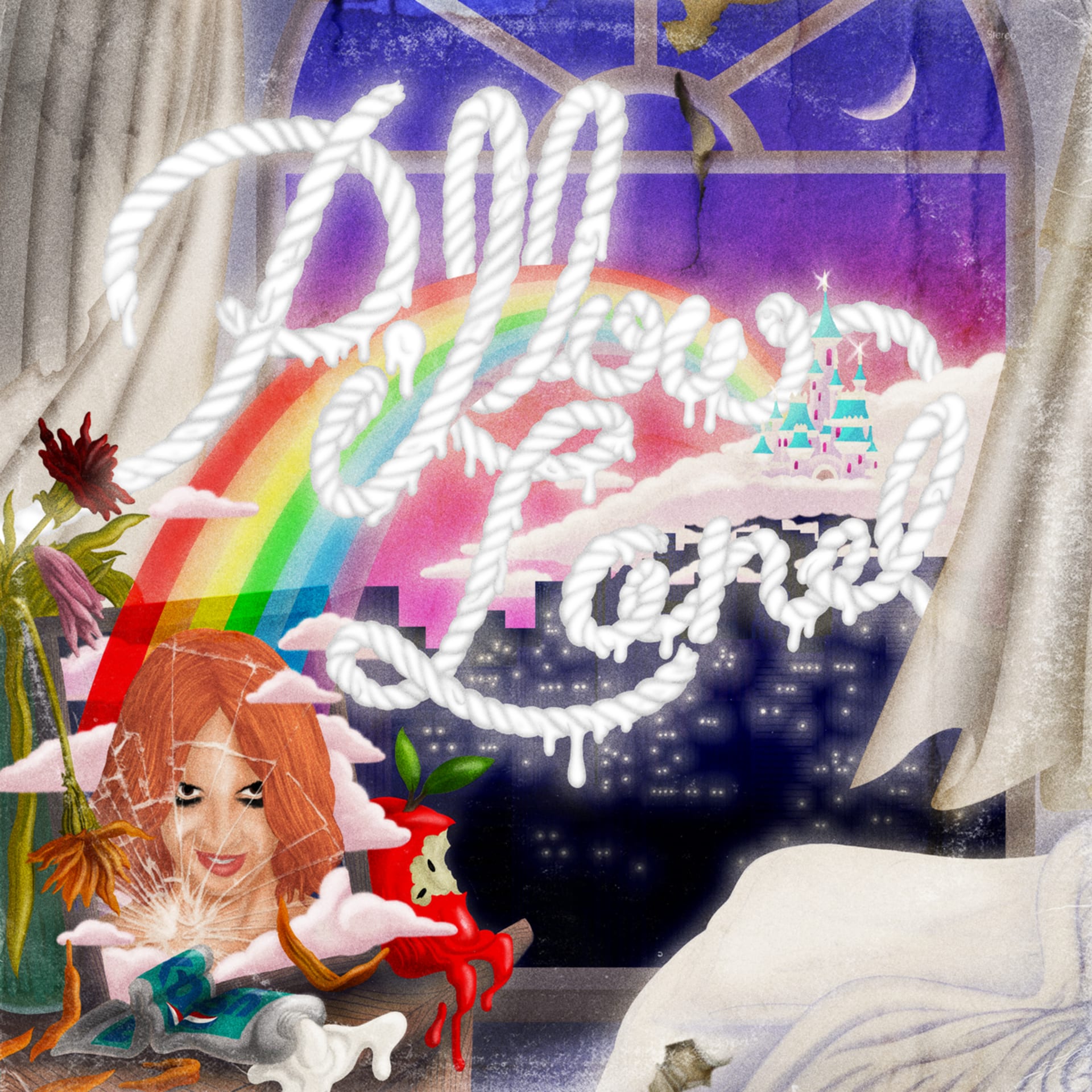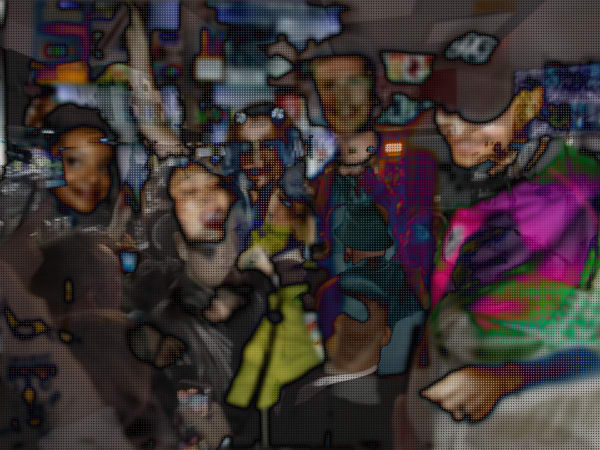

Jam City Escapes Into a Psychedelic Fantasy
On 'Pillowland,' the UK producer paints a candy-colored dreamworld through '70s glam rock and modern pop sensibilities.
Curdled glam-rock bombast and hyperpop confections
Troubled escapism for times of political crisis
A bold pop step from a visionary UK producer
“There is a place for holding a mirror up to the world that you live in,” said Jack Latham in a 2015 interview. “But I’ve done that now, and I still feel the same as I did then. I’m still not happy with this world.” He was referring to his debut album as Jam City, 2012’s Classical Curves, whose lithe rhythms and sleek surfaces reveled in the empty dazzle of late capitalism. In the wake of the 2008 financial crash, this kind of ambivalence was a common artistic response to a failing political system. In the decade since, the world has changed fast—and so has Latham’s music.
By 2015’s Dream A Garden, sleek club tracks had given way to dog-eared songs, and veiled critique to earnestness, reflecting a wider shift among Latham’s generation towards politicized sincerity. Preaching a doctrine of love, the album argued that a better future was possible, however distant it might seem. On its follow-up, a lurid pop fancy released in a year of global crisis, this optimism has curdled into pure fantasy.
By loading the content from Bandcamp, you agree to Bandcamp's privacy policy.
Learn more

The intro track sets the tone. It’s a fever dream of ’70s rock excess, a candy-colored diorama of widescreen riffs and wailing guitar solos delivered in under two and a half minutes—and it’s insanely fun. It’s telling that Latham’s reference points have drifted back in time, from Dream A Garden‘s ’80s 4AD and Prince towards the glam and psychedelic rock of the preceding decade. Where the last album felt whimsical but rooted in reality—Latham was born in the ‘80s—Pillowland offers escape into a lost world. It dangles a mirage of glamor in front of a generation who are seeing their futures crumble before their eyes. Maybe you could say it’s cruel, but the cruelty is in the situation; Latham just distills it, and better than most.
For all his retro references, Latham’s pop sensibility is cutting edge. One weakness of his last album was its hesitancy with song form. He has since produced for Kelela, Bad Gyal and others, and on Pillowland he sounds more confident. Sometimes, like on the super-catchy “Cartwheel”, there are shades of Tame Impala’s big-tent psychedelia. “Sweetjoy” is condensed teeny-bopper hook science in the “hyperpop” vein (think Charli XCX with Jam City weathering), and it’s brilliant.
Still, we can never sink too deep into the fantasy. These songs sound scarred and grubby, as if they’re junked baubles pulled from the landfill of capitalism. And there’s a fugitive quality, even, especially in their most joyful moments. Take “They Eat The Young”, whose glam rock swagger erupts out of a swirl of filthy noise. It’s a hooky monster, but the whole thing sounds claustrophobic and shrill with the chipmunked voice and the ultra-processed guitars. It’s as if Latham is desperately trying to maintain an illusion, going through the motions while the bad dream of reality taps him on the shoulder. Pillowland is glitzy on the surface, but it’s the darkness underneath that stays with you.
Listen to Pillowland on Jam City’s Bandcamp.
Published November 13, 2020. Words by Angus Finlayson.










